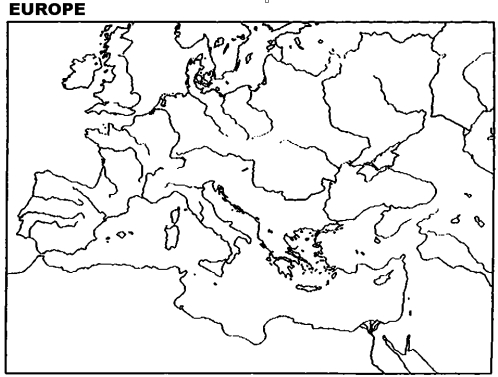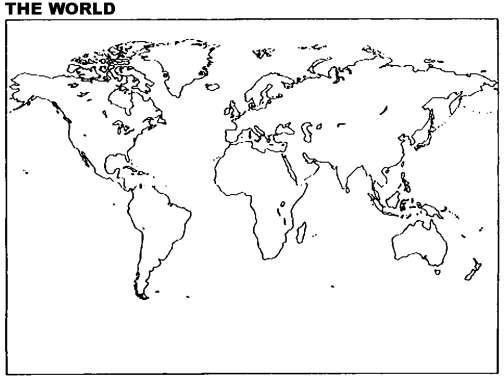Exam 18: The Age of Enlightenment: Reason and Reform
Exam 1: The Ancient Near East: the First Civilizations87 Questions
Exam 2: The Hebrews: a New View of God and the Individual92 Questions
Exam 3: The Greek City-State: Democratic Politics78 Questions
Exam 4: Greek Thought: From Myth to Reason77 Questions
Exam 5: The Hellenistic Age: Cultural Diffusion79 Questions
Exam 6: The Roman Republic: City-State to World Empire76 Questions
Exam 7: The Roman Empire: a World-State91 Questions
Exam 8: Early Christianity: a World Religion79 Questions
Exam 9: The Heirs of Rome: Byzantium, Islam, and Latin Christendom97 Questions
Exam 10: The High Middle Ages: Vitality and Renewal83 Questions
Exam 11: The Flowering of Medieval Culture: the Christian Synthesis78 Questions
Exam 12: The Late Middle Ages: Crisis and Dissolution77 Questions
Exam 13: The Renaissance: Transition to the Modern Age89 Questions
Exam 14: The Reformation: the Shattering of Christian Unity85 Questions
Exam 15: European Expansion: Economic and Social Transformations89 Questions
Exam 16: The Rise of Sovereignty: Transition to the Modern State85 Questions
Exam 17: The Scientific Revolution: the Universe Seen As a Mechanism85 Questions
Exam 18: The Age of Enlightenment: Reason and Reform89 Questions
Select questions type
England drove the French from North America as part of which conflict?
(Multiple Choice)
4.8/5  (31)
(31)
Instructions: Please define the following key terms.Show Who? What? Where? When? Why Important?
-civil society
(Essay)
4.9/5  (32)
(32)
Criticism of slavery first appeared in early modern Europe among the
(Multiple Choice)
4.9/5  (45)
(45)
Instructions: Please define the following key terms.Show Who? What? Where? When? Why Important?
-epistemology
(Essay)
5.0/5  (36)
(36)
Instructions: Please define the following key terms.Show Who? What? Where? When? Why Important?
-salons
(Short Answer)
4.8/5  (42)
(42)
Instructions: Please use this outline map of Europe to answer the question(s).  -Indicate the location and home country of the following: Bayle, Locke, Hume, Montesquieu, Rousseau, Voltaire, Diderot, Beccaria, and Kant.
-Indicate the location and home country of the following: Bayle, Locke, Hume, Montesquieu, Rousseau, Voltaire, Diderot, Beccaria, and Kant.
(Short Answer)
4.8/5  (39)
(39)
Instructions: Please define the following key terms.Show Who? What? Where? When? Why Important?
-socialist
(Essay)
4.9/5  (37)
(37)
Instructions: Please use this outline map of Europe to answer the question(s).  -Indicate the location of the following: original home of the Freemasons, the Grand Lodge of the Freemasons, and the Encyclopedia.
-Indicate the location of the following: original home of the Freemasons, the Grand Lodge of the Freemasons, and the Encyclopedia.
(Essay)
4.9/5  (39)
(39)
At the end of the seventeenth century, examples of intolerance included
(Multiple Choice)
4.8/5  (37)
(37)
Instructions: Please write a thorough, well-organized essay to answer each question.
-Discuss the Enlightenment as part of the broader intellectual history of the West.
(Essay)
4.8/5  (39)
(39)
Instructions: Please define the following key terms.Show Who? What? Where? When? Why Important?
-Freemasons
(Short Answer)
4.8/5  (40)
(40)
Instructions: Please write a thorough, well-organized essay to answer each question.
-How did the concept of human rights make its appearance during the Enlightenment?
(Essay)
4.9/5  (40)
(40)
Instructions: Please write a thorough, well-organized essay to answer each question.
-Explain how Enlightenment ideas, in breaking with the medieval worldview, had an impact on the modern intellectual perspective.
(Essay)
4.8/5  (32)
(32)
Instructions: Please write a thorough, well-organized essay to answer each question.
-Compare the ideas of Thomas Hobbes, John Locke, and Jean Jacques Rousseau about the origin of the state.What was the relationship of the citizen to the state according to each of these men?
(Essay)
4.9/5  (38)
(38)
Instructions: Please use this outline map of the world to answer the question(s).  -Indicate the following colonial empires in 1750: Spanish, Dutch, French, and British.
-Indicate the following colonial empires in 1750: Spanish, Dutch, French, and British.
(Short Answer)
4.8/5  (34)
(34)
Showing 61 - 80 of 89
Filters
- Essay(0)
- Multiple Choice(0)
- Short Answer(0)
- True False(0)
- Matching(0)